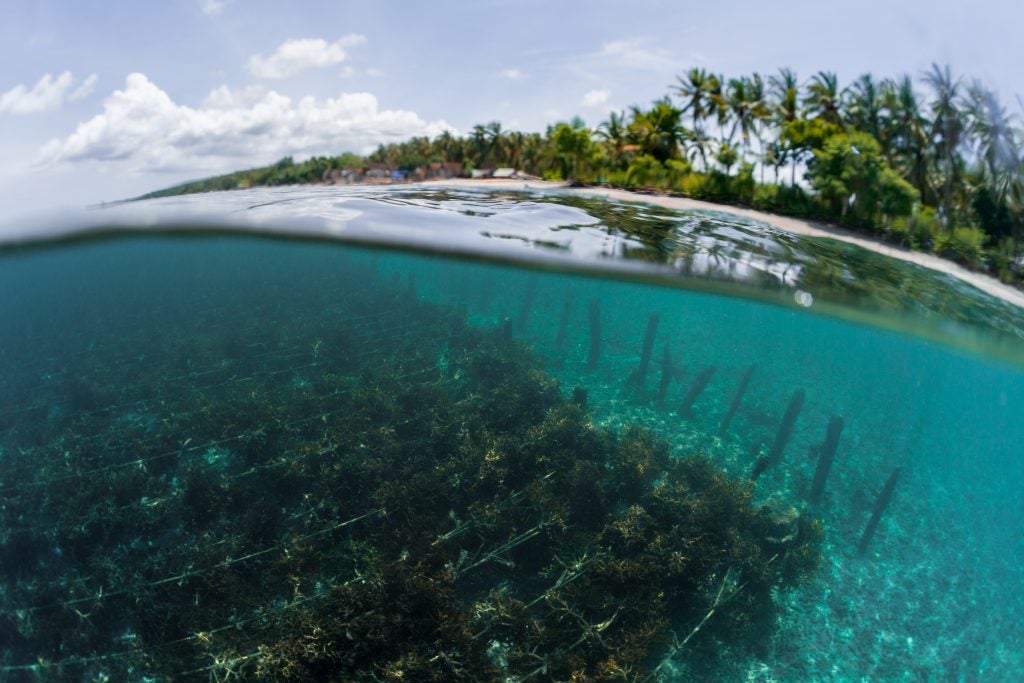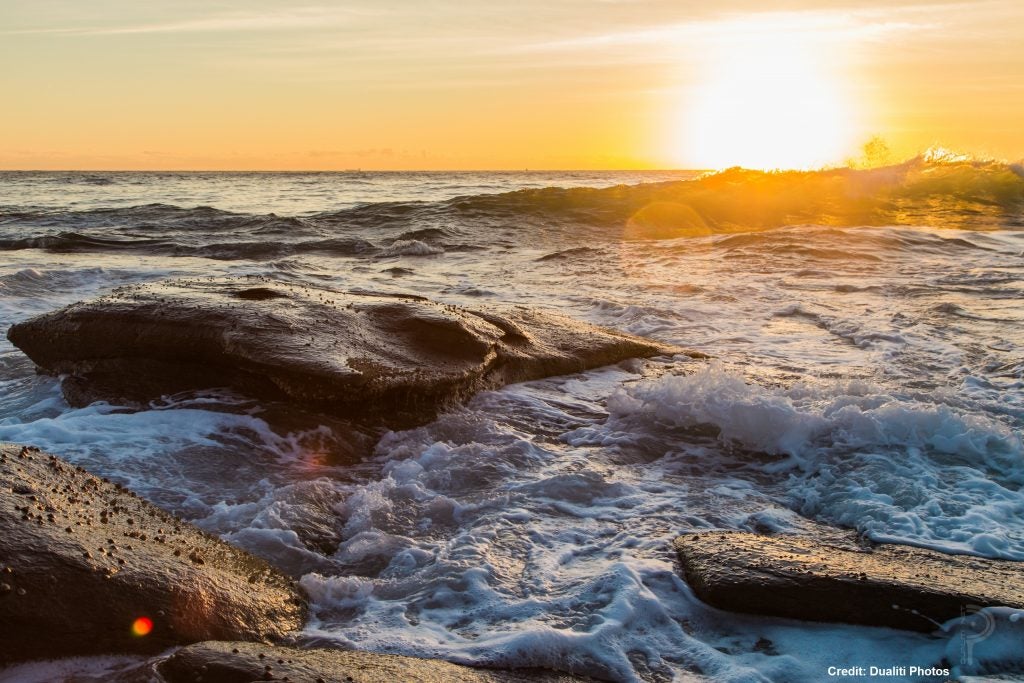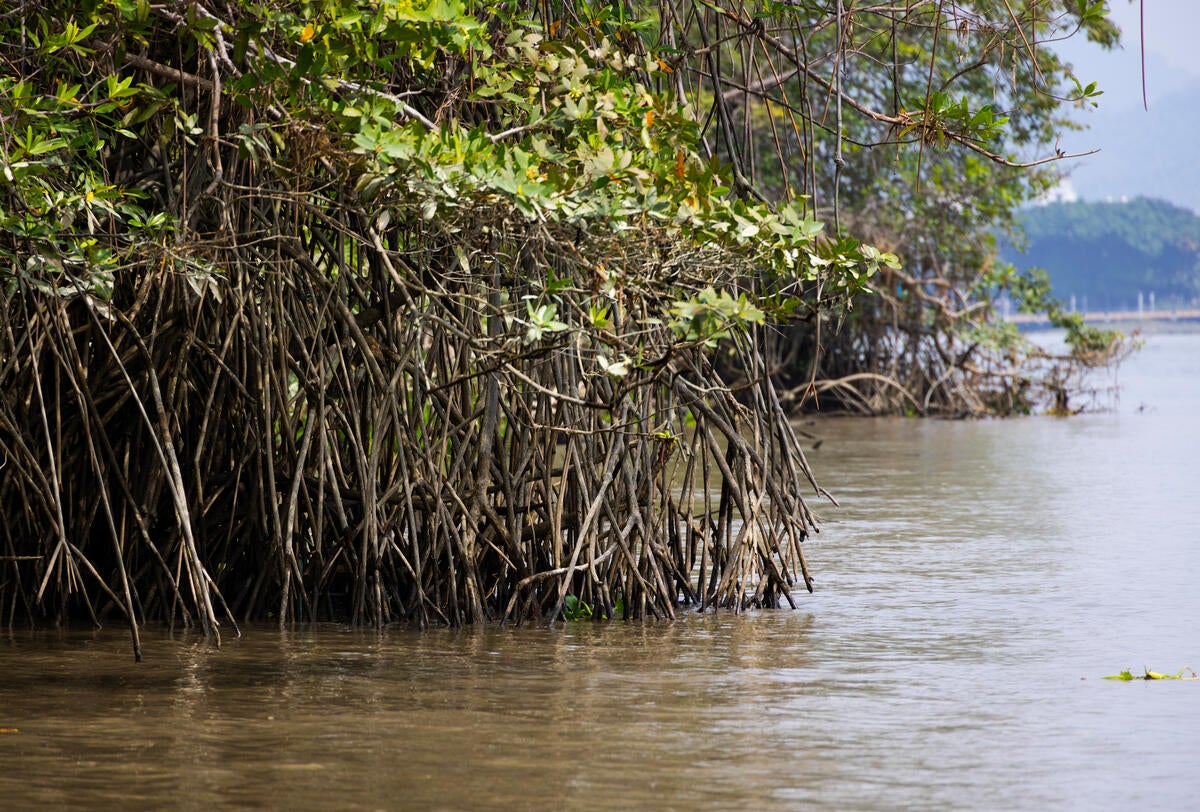This past August, in southern Ecuador amidst dense mangrove forests, scientists were at work. As I followed in her footsteps, Julie Shahan, a Stanford University Ph.D. student, navigated the challenging terrain, burdened by the large 25-pound piece of equipment on her back. This equipment, a gas analyzer, collects measurements to unlock the secrets of soil greenhouse gas emissions. This journey was a collaborative effort between Universidad Espíritu Santo (UEES), Stanford University, Scripps Institute of Oceanography and Environmental Defense Fund. Read More
EDFish
Selected tag(s): research
Blending science and community to support mangrove restoration in Ecuador
Seaweed to Slow Down Climate Change: Ready? Or Not?

Seaweed is a hot solution for mitigating climate change. Can this carbon-absorbing powerhouse really help?
Seaweed is having a moment. I’ve been working on seaweed for 40 years, and I’ve never seen so many headlines about how seaweed can save the planet.
I can understand why. The need to save the planet is more pressing than ever. We must now dramatically reduce greenhouse gas emissions and, at the same time, increase the planet’s capacity to remove carbon dioxide (CO2) from the atmosphere to prevent even more catastrophic impacts of global warming.
Using sound to improve fishery management study sardines in the Philippines

Workshop participants watching the echosounder identify schools of pelagics. Photo credit Joe Warren.
By EDF’s Jose Ingles, Jimely Flores and Rod Fujita, and Joseph Warren, Stony Brook University
Small fish have a big role. Fisheries for sardine, herring and anchovy species collectively produce more yield than any other fisheries worldwide and account for about one-third of total global catches arriving in ports. These fisheries span the globe and are critical for supporting livelihoods, aquaculture, food security, ecotourism and terrestrial animal husbandry (many catches are used to make fishmeal and fish oil). Read More
The Climate-Resilient Fisheries Toolkit can help you build resilience now
By Jeff Young
Climate change and overfishing are increasingly straining fisheries and marine ecosystems, putting marine biodiversity, the nutrition of people in coastal communities and global food supply at greater risk. Fishers, community leaders and practitioners worldwide are poised to take action, but often grapple with uncertainty, limited data or insufficient resources. Meanwhile, the journey of building resilience can often feel daunting and overwhelming. These leaders and change-makers are not alone in their experiences and tangible solutions to these major challenges are within reach. Read More
Seaweeds to the rescue, redux

Recently, there has been a great deal of interest and even excitement about how seaweed might be able to help save us from climate change.
I appreciate the newfound exuberance for seaweed, and wholeheartedly agree that seaweeds do a lot for society and the planet. A similar awakening to the wonders of seaweed occurred in the 1980s, but it is now a distant memory. Let’s revisit the past so we can figure out how to create the conditions that will drive the restoration of seaweed forests and the expansion of seaweed farming at scale so they can contribute to carbon drawdown while benefiting people and nature. Read More
Hope for the oceans in a time of COVID-19
 The global COVID-19 pandemic gives us all pause about what the future holds. Our focus and attention are on all those hurt by this terrible disease. But for many of us, this is also a time of deep reflection about society and the world we’ll inhabit when this scourge is over. So for me, it’s also a moment to reflect on the prospects for the ocean, one of the planet’s fundamental life-support systems — making it vital to human health and well-being. Read More
The global COVID-19 pandemic gives us all pause about what the future holds. Our focus and attention are on all those hurt by this terrible disease. But for many of us, this is also a time of deep reflection about society and the world we’ll inhabit when this scourge is over. So for me, it’s also a moment to reflect on the prospects for the ocean, one of the planet’s fundamental life-support systems — making it vital to human health and well-being. Read More










